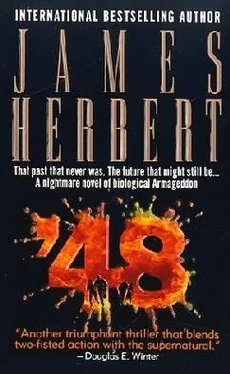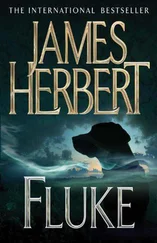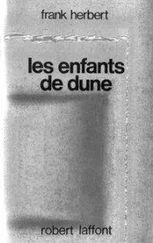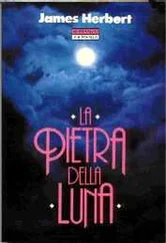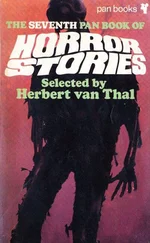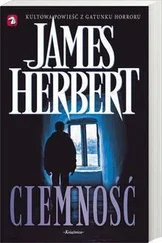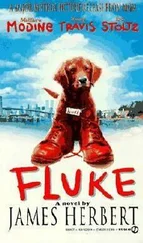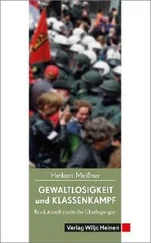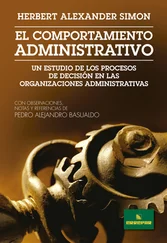James Herbert - ‘48
Здесь есть возможность читать онлайн «James Herbert - ‘48» весь текст электронной книги совершенно бесплатно (целиком полную версию без сокращений). В некоторых случаях можно слушать аудио, скачать через торрент в формате fb2 и присутствует краткое содержание. Жанр: Триллер, на английском языке. Описание произведения, (предисловие) а так же отзывы посетителей доступны на портале библиотеки ЛибКат.
- Название:‘48
- Автор:
- Жанр:
- Год:неизвестен
- ISBN:нет данных
- Рейтинг книги:5 / 5. Голосов: 1
-
Избранное:Добавить в избранное
- Отзывы:
-
Ваша оценка:
- 100
- 1
- 2
- 3
- 4
- 5
‘48: краткое содержание, описание и аннотация
Предлагаем к чтению аннотацию, описание, краткое содержание или предисловие (зависит от того, что написал сам автор книги «‘48»). Если вы не нашли необходимую информацию о книге — напишите в комментариях, мы постараемся отыскать её.
‘48 — читать онлайн бесплатно полную книгу (весь текст) целиком
Ниже представлен текст книги, разбитый по страницам. Система сохранения места последней прочитанной страницы, позволяет с удобством читать онлайн бесплатно книгу «‘48», без необходимости каждый раз заново искать на чём Вы остановились. Поставьте закладку, и сможете в любой момент перейти на страницу, на которой закончили чтение.
Интервал:
Закладка:
My first choice would’ve been the Bren gun, one of the best light machine guns of all time: reliable, pretty fair accuracy, steadiness in firing, and with a reasonably low rate of fire, which allowed a better aim without too much ammunition wastage. Also, it had only three kinds of stoppage factors (certain similar weapons had twenty-three, for Chrissake!) and I knew how to fix all three, and smartly at that. But now I nixed it, because even with its bipod folded forward the gun was awkward to carry if you intended to be moving fast – and before the hour was out I intended to be moving very fast.
So I turned to the Thompson, nicknamed the Tommy gun, lifting it and feeling its weight It handled well and could be switched to single-shot if required; but this one, the military version, carried a twenty-round box that took only two seconds of automatic fire to empty (with the fifty-round magazine cartridges would rattle around like nuts and bolts in a tin box, which could be a mite embarrassing if you were sneaking up on an enemy position). It also had a ‘spray’ effect, which was fine for trench warfare, but not so hot if the good guys were mixed up with the bad guys. I needed more control.
Laying down the Thompson, I picked up the Sten gun that had been standing next to it This would have to be the one. Its main advantages were that it was easy to carry, especially using a fitted sling, and it was simply built, so there were fewer things to go wrong. Another advantage was that the magazine fitted into the gun’s left side so that it could lie across my forearm for additional stability and wouldn’t interfere if I had to hit dirt and fire from the ground. It also had a thirty-round capacity which, with two spare mags inside the bag, should be more than enough for my purposes. Before I’d brought this particular model along I’d been faced with another choice. During the war, commandos and raiding parties understandably had favoured silenced weapons, so a variation Sten gun had been produced with its own inbuilt silencer and canvas heat-resistant cover, and these particular versions were among the collection I was able to pick from. After a few seconds’ deliberation, I’d elected the unsilenced MKY, a quality 1944 model with wooden stock, pistol grip and rifle foresight, deciding that today I’d want plenty of noise.
Removing the magazine, I shook it against my ear just to hear the slight but reassuring shift of cartridges, then slapped it back in. It entered smoothly, no fuss at all.
Satisfied with the ‘artillery’, I reached under the back of my sweatshirt and slid out the double-edged commando knife from the sheath attached to my belt. The thin, ridged handle was wrapped in leather and the tapering blade with its wickedly sharp point was coated in non-reflective black. It looked vicious and I hoped to God I wouldn’t have to use it – I didn’t want to be that close to the enemy. I put the knife away again, but left the handle protruding outside the sweatshirt for easy access.
I’d been lucky that in the early hours of the morning I hadn’t needed to travel too far to find other items I’d be using that day, because when the Luftwaffe had turned its attention towards the Soviet Union back in ‘41, giving London’s East End a breather from their bombing raids, quite a number of factories and firms in these parts had converted to war production, manufacturing anything from demolition charges to safety fuses, from dynamite to shells fitted with explosives; just across the river at Woolwich was one of the country’s biggest armouries. For the hand weapons I’d paid a visit to a deep shelter transit depot I knew of only a couple of miles from where I now stood, a place where troops waiting to be shipped overseas had been billeted, equipment and all, until time to go. Unfortunately, the last lot hadn’t gone anywhere – the Blood Death had seen to that – leaving the depot well stocked with all kinds of weaponry and tackle. It wasn’t pleasant searching the stores down there, and only a deep seething rage that overwhelmed all else got me through it.
Oddly, I was no longer trembling. It’d been a bad night, I’d hardly slept thinking of what I had to do, and laying there in the dark, my hands had started to shake and my throat had tightened up so that it was difficult to breathe. My mouth had dried too, and there was a dread in my gut that felt like a physical lump. It was a relief to leave the bed while it was still black outside and set things rolling. And now, after a lot of hard work and some travelling, my hands were steady and my mouth wasn’t at all dry. There was a grim determination in me, a kind of dark coldness that had taken over from the rage to stifle any other emotion. Sure, I was scared, but for the first time in three years I felt I was in control.
With one last sweeping inspection of the old castle and its battlements, I moved out.
24
AS I WALKED DOWN the cobbled hill towards the castle’s main gates I remembered the first time I’d visited the Tower of London. It was in ‘43 and, because this tourist attraction was closed to the public for the duration, I went along without Sally. The British government encouraged US and other Allied Forces to visit its country’s historic places and monuments – it was a great exercise in public relations – and I was just one of thousands of American servicemen stationed over here to drop in on the Tower. I was among a small group of flyers, about half-a-dozen if I remember right, two of ‘em English, and we had a guide – one of those scarlet-tunicked Beefeater guys – all to ourselves. He was thorough, enjoying his own country’s history and traditions, but I’d forgotten most of what he told us, although I still retained a fair idea of the layout of the place and had a vague notion of its past glories (and infamies). Last night I’d been puzzled as to why Hubble and his not-so-merry band of blood thieves should choose the castle as headquarters when they had the choice, like me, of London’s finest mansions or hotels – those still left undamaged by the Blitz and unchecked fires, leakages and gas explosions, that is – but I eventually came to the conclusion that the Tower of London, with all its historical associations and grandeur, suited Hubble’s own vision of himself. His crazed mind considered himself the new overlord of civilization, the baron of rebirth, if you like, military master of the New Order – why else the martial uniforms and his sham, jackbooted army? – so what better centre of command than the fortress of England ’s most famous conqueror, William? Hubble had an acute sense of destiny. Besides, there were comfortable enough living quarters within the walls and I was willing to bet old Sir Max had claimed the best for himself. And that was where I hoped to find him this morning.
Carcasses and a few abandoned vehicles, some of them military, littered the road and broad pavements of Tower Hill, and halfway down I passed the remains of a carthorse still attached to its wagon’s shafts, the body almost picked clean, the bones yellowed by the sun. The cart, laden with boxes, had its rear against one of the many short iron posts (small French cannon captured in the Napoleonic Wars, like the one at the end of the alleyway in Tyne Street, set upright in concrete and painted black) and I remembered being informed by that fancy-decked guide on my previous visit how the carters from Billingsgate fish market (just down the road and not far from where I’d moored the motor launch two nights ago) would back their wagon’s tailboard against a post whenever their horse got too weary hauling its load up the hill. Of the driver there was no sign – had he been one of the lucky ones, or just a Slow-Dier? – but the fish boxes on the cart had obviously been attacked for their contents at some time in the past – the marks and scratches on the wood were aged – although they remained unbroken. Still walking, my gaze went back to what was left of the horse and I suddenly understood what had happened here: unable to get at the fish packed inside the sealed boxes, the birds – had to be birds, judging by those marks on the wood – had eaten the horse. But what kind of bird could strip an animal that size of all its flesh? I thought of the lone seagull that had flown through the bridge minutes earlier and wondered, but it was a distraction that disappeared when I drew nearer to the tall, bomb-scarred gates at the bottom of the hill.
Читать дальшеИнтервал:
Закладка:
Похожие книги на «‘48»
Представляем Вашему вниманию похожие книги на «‘48» списком для выбора. Мы отобрали схожую по названию и смыслу литературу в надежде предоставить читателям больше вариантов отыскать новые, интересные, ещё непрочитанные произведения.
Обсуждение, отзывы о книге «‘48» и просто собственные мнения читателей. Оставьте ваши комментарии, напишите, что Вы думаете о произведении, его смысле или главных героях. Укажите что конкретно понравилось, а что нет, и почему Вы так считаете.
